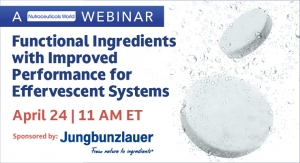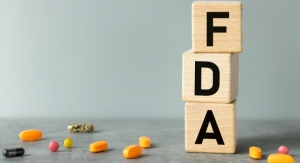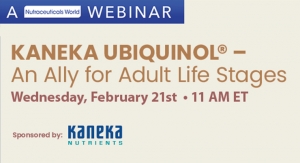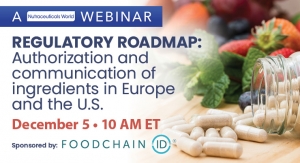By Erik Goldman, Holistic Primary Care10.01.20
If you’re reading this magazine, you probably know a thing or two about warning letters from the Food and Drug Administration and the Federal Trade Commission.
Federal oversight and the ever-present threat of warnings are simply a part of doing business in the natural products and dietary supplements industry.
So, it should be no surprise to you that the agencies have intensified their scrutiny in the wake of the COVID-19 pandemic. Any public health crisis of this magnitude creates a ripe situation for marketers promising quick cures and dubious defenses. With COVID-19, the huckstering began almost as soon as the virus hit our shores.
Federal regulatory actions were equally swift. By the second week of March, the FDA had issued cease-and-desist warning letters to seven companies selling alleged COVID-19 remedies, including teas, essential oils, tinctures, and colloidal silver. The agency fired off a second wave of warnings in April. By August, FDA sent letters to nearly 100 different companies for “selling fraudulent products with claims to prevent, treat, mitigate, diagnose or cure” coronavirus.
The FDA has also targeted “rogue online pharmacies offer[ing] potentially dangerous prescription drugs.” A catalog of Internet companies operating unlawful drug-selling operations is available on the FDA website. The FTC has been equally active, and many of the warnings were issued jointly.
None of this is unexpected. Even in ordinary times, the FDA and FTC frequently reprimand supplement companies, pharmacies, device-makers, and food/beverage brands that market questionable products or make unsubstantiated, misleading, or inappropriate claims.
What is new, and noteworthy, is the intensity with which the regulators—especially the FTC—are also targeting physicians and other healthcare practitioners.
Practitioners: A New Target
Since the pandemic began, FTC has issued unprecedented warning letters to more than 250 physicians, clinics, and companies that “promot[ed] their products and services with COVID-19 prevention or treatment claims.”
These warnings have come in waves over the last 6 months, targeting MDs, naturopaths, chiropractors, acupuncturists, osteopaths, and non-licensed lay healthcare coaches.
Some recipients were clearly making egregious and potentially dangerous claims about unproven, or even disproven, COVID therapies. But others were disciplined simply for posting on their practice websites or blogs about things like vitamin C or vitamin D for strengthening immune system function and warding off infections.
Most of those who got the cease-and-desist letters were completely blind-sided; they had no idea that their patient education content could be construed by Federal officials as “commercial speech” or “marketing.”
In some cases, the warnings contend that in making or insinuating COVID claims, these practitioners violated the Dietary Supplement Health and Education Act (DSHEA), which strictly prohibits supplement producers and marketers from making disease-related claims. This is especially true for letters sent to practitioners who sell supplements in their practices.
To state publicly that a supplement can prevent or cure any disease is to make an unapproved drug marketing claim—even if there is research to support it. On the industry side, most responsible executives understand this. Most practitioners do not.
A Hard Stance
While the risk of stepping over a regulatory line is higher for practitioners who sell supplements in their practices, some of the practitioners chastised by FTC were not directly selling or promoting specific products; they were simply suggesting that certain natural substances might have benefit in improving resilience.
In this context, the FTC is simply enforcing its very unequivocal position that currently there are no scientifically proven, FDA-approved products—pharmaceutical, nutritional, herbal, or otherwise—for preventing or treating COVID-19 or the virus that causes it.
Therefore, any commercial language stating or insinuating such benefits is inherently unsupportable or misleading, and therefore in violation of the law.
Part of the FTC’s mandate is to protect the public from unsubstantiated, false, or misleading advertisements. This view is summed up clearly in phrasing found in many of the warning letters:
“It is unlawful under the FTC Act, 15 U.S.C. § 41 et seq., to advertise that a product or service can prevent, treat, or cure human disease unless you possess competent and reliable scientific evidence, including, when appropriate, well-controlled human clinical studies, substantiating that the claims are true at the time they are made. For COVID-19, no such study is currently known to exist for the services identified above. Thus, any coronavirus-related treatment or prevention claims regarding such services are not supported by competent and reliable scientific evidence.”
One troubling feature of some of the recent warnings is that they cite general immune system claims as de facto COVID claims, even though the actual language posted by the physicians might not mention specific products, might not make definitive disease claims, or might not even use the words “COVID” or “coronavirus.”
In the pandemic era, the agencies consider any mention of the immune system to be an implied COVID claim.
Here are some examples of what the regulators deem transgressive online commercial speech by medical professionals. These statements are taken from actual citations in warning letters sent to practitioners in recent months:
At face value, an FDA or FTC warning letter might not seem like a big deal. Supplement companies deal with them all the time. The letters demand that the recipient delete all the cited statements from their websites, blogs, and marketing materials within 48 hours, and report back to the agency that this has been done.
But keep in mind that most medical practitioners are extremely risk averse, few have good understanding of FDA and FTC regulations, and even fewer have reliable legal counsel on these issues.
Though the warning letters themselves may be fairly benign, they do enter the public record, which is constantly being trolled by class action attorneys, state attorneys general, state medical boards, and even the department of justice.
We know of at least one case in which the FBI raided a medical doctor’s clinic to stop him from administering IV vitamin C infusions, free of charge, as a preventive or treatment for COVID. There are also reports of bank account closures of practitioners who’d received warning letters.
This is a red alert situation. The fact that the FDA and FTC have turned their attention to medical professionals and their online communications, should concern any company doing business in the practitioner space. Historically, the regulators have shied away from directly confronting clinicians unless they were brazen in promoting products and making wild claims.
The current practitioner warning letters indicate the agencies have revised what they consider acceptable claims. For years, the regulators treated claims like “supports a healthy immune system” to be within bounds. Not anymore.
Michael D. Levin, a supplement industry consultant who has decades of experience in the practitioner channel said he and other natural medicine advocates are concerned that these COVID-related actions set precedents for greater restriction on other claims beyond the COVID context.
The United Natural Products Alliance shared that anxiety. In a recent bulletin, UNPA stated that: “We have a growing concern that the FTC is working hard to push back what has been “safe” structure/function claims territory. The worst case is that this trend would now follow to other important categories, whether COVID-19 or not.”
Three Big Questions
In evaluating a practitioner’s online statements, regulators are considering three main things:
“Commercial speech,” is any communication intended to promote products or services. Judging from the recent warning letters, the FTC now views any and all statements on a medical practice’s website to be “commercial speech” in the sense that the overarching intention of the website is to promote the physician’s practice and the services or products it provides.
There is nothing illegal or transgressive about commercial speech, so long as it is truthful. But many practitioners hold that the content they post is educational, not “commercial,” and that their prime motive is to help their patients.
Many clinicians are unaware of the distinctions between different types of claims; they may not be aware that posting research showing that a vitamin or herb has antiviral properties could be perceived as an implied disease treatment claim, and potentially a violation of DSHEA.
Then there’s the question of whether a claim—of whatever sort—is truthful and supportable by good evidence.
In the context of COVID, the agencies have taken the stance that there is no definitive evidence to support claims for any product or medical intervention as a “cure” or preventive measure against COVID-19.
FDA and FTC do not consider anecdotal evidence, clinical experience, or clinical studies of other viral conditions to be substantial enough to support an overt or implied COVID treatment claim.
In a webinar sponsored by the Council for Responsible Nutrition last summer, Kristi Wolff, an attorney with Kelley & Drye, LLP, a law firm specializing in nutrition industry regulation, put the situation simply.
The FDA says: “You’re making claims to treat a disease. That is not permitted for dietary supplements.”
The FTC says: “You need competent scientific evidence to substantiate the claim you’re making. We don’t believe you have it. Therefore, we believe you’re making fraudulent claims.”
Concern in Congress
There’s legislative muscle behind the recent regulatory moves. In July, the Senate Subcommittee on Manufacturing, Trade and Consumer Protection, headed by Sen. Jerry Moran (R-KS), held a hearing titled “Protecting Americans from COVID-19 Scams.“
“During this time of national emergency and coordinated recovery, there are fraudsters and scam artists that seek to take advantage of consumers, especially the nation’s most vulnerable communities,” said Moran. “FTC’s Consumer Sentinel Network reports that consumers across the U.S. have reported over 136,000 different cases of COVID-related scams totaling approximately $90 million in total fraud losses from January 1 to July 20. These are only the reported cases. It is fair to assume that there are harmful consumer scams that have not been reported to date.”
Moran, and others in Congress, feel they have an obligation to protect Americans from, “unsubstantiated health benefits advertised for certain products, illegal robocalls pitching low-priced health insurance, fraudulent donation solicitations, or even impostors claiming to be from federal agencies collecting mandatory payments.”
Few in the natural products industry take issue with this stance, at least in principle.
Back in February, a coalition representing the supplement trade associations issued a stark warning against making COVID treatment claims.
“While research supports the use of certain dietary supplements to maintain immune system health, we are not aware of clinical research that demonstrates using a dietary supplement specifically to prevent or to treat the Novel Coronavirus,” the position statement said. “Even if research is conducted and published on the topic, the law that regulates dietary supplements [DSHEA] prohibits marketers of dietary supplements in the U.S. from promoting any dietary supplement product that makes disease prevention or treatment claims.”
Claims vs. Clinical Communication
At issue currently is whether a physician’s social media posts about the immune-boosting potential of medicinal mushrooms or oil of oregano, for example, constitute COVID-related disease claims or clinical communication.
Levin said the FTC is doing its rightful job by policing commercial speech. The big problem is that most practitioners are unaware the statements they make on their clinic websites, in e-mail newsletters, or on social media posts, in fact constitute commercial speech.
He stressed that FTC has shown no interest in regulating the protected and private speech between doctors and their patients. Direct, private, one-on-one conversations between practitioners and patients are beyond FDA and FTC jurisdiction; they fall under the rubric of “practice of medicine.” The legitimacy and veracity of what doctors say to their patients is for state medical boards (and judges in malpractice cases) to decide.
It is the public communications—online and in print—that can trigger warning letters. But most doctors don’t know this.
Some clinicians blind-sided by the warning letters believed they were simply offering guidance to their audience (patients and prospective patients) for improving their resilience, mitigating risk, and supporting immune function. It was ignorance of the regulations that got them in trouble, not commercial intent.
Some practitioners, and some health advocacy groups are concerned that the warning letters foreshadow a larger, more insidious federal effort to curtail natural healthcare.
“Your right to learn from your doctor about natural methods of staying healthy during the pandemic are under threat,” the Alliance for Natural Health warned consumers in a May statement. “The FDA, FTC, Department of Justice, and some state attorneys general have launched a coordinated censorship campaign that prevents medical doctors and other healthcare providers from communicating their extensive knowledge about how to stay healthy ... using natural medicine.”
Finding a Middle Path
The proliferation of fraudulent COVID cures is a real and significant problem. Equally significant and problematic is the restriction of open communication about potentially beneficial, readily-accessible, low-risk ways to boost resilience, reduce cardio-metabolic risk, and improve overall health.
The question is how to regulate the market appropriately to protect the public from scams without penalizing practitioners who are simply trying to educate patients.
Finding that reasonable middle path will take considerable advocacy, time, and goodwill from all parties involved.
For now, Levin said practitioners would do well to learn the rules.
Several medical organizations have acknowledged this need. The American Association of Naturopathic Physicians (AANP) has been very proactive on this topic, issuing numerous advisories and guidance to members, and educating them about the risks involved in commercializing or marketing the natural treatment approaches they write about in any of their patient communications.
At Holistic Primary Care, we are working with the AANP, Levin, and other concerned stakeholders to develop an online training program that will help practitioners to stay within the bright white lines of approvable commercial speech, while maintaining their freedom of speech to help their patients.
We have tentative participation commitments from a key member of the FTC’s regulatory staff, several attorneys familiar with these issues, and an MD who was hit with a warning letter. Watch for that later this fall.
A number of interested parties are also working on developing disclaimer language which practitioners could post at the top of any and all COVID-related public online communications, and which could potentially reduce the odds of running afoul of the regulators.
Many thought leaders within the practitioner channel believe a disclaimer would be a reasonable “middle path” approach to the challenge of balancing consumer protection with medical freedom of speech.
It remains to be seen whether the FTC and FDA will see it that way.
Erik Goldman
Holistic Primary Care
Erik Goldman is co-founder and editor of Holistic Primary Care: News for Health & Healing, a quarterly medical publication reaching about 60,000 physicians and other healthcare professionals nationwide. He is also co-producer of the Practitioner Channel Forum, the nation’s leading conference focused on opportunities and challenges in the practitioner segment of the dietary supplement industry.
Federal oversight and the ever-present threat of warnings are simply a part of doing business in the natural products and dietary supplements industry.
So, it should be no surprise to you that the agencies have intensified their scrutiny in the wake of the COVID-19 pandemic. Any public health crisis of this magnitude creates a ripe situation for marketers promising quick cures and dubious defenses. With COVID-19, the huckstering began almost as soon as the virus hit our shores.
Federal regulatory actions were equally swift. By the second week of March, the FDA had issued cease-and-desist warning letters to seven companies selling alleged COVID-19 remedies, including teas, essential oils, tinctures, and colloidal silver. The agency fired off a second wave of warnings in April. By August, FDA sent letters to nearly 100 different companies for “selling fraudulent products with claims to prevent, treat, mitigate, diagnose or cure” coronavirus.
The FDA has also targeted “rogue online pharmacies offer[ing] potentially dangerous prescription drugs.” A catalog of Internet companies operating unlawful drug-selling operations is available on the FDA website. The FTC has been equally active, and many of the warnings were issued jointly.
None of this is unexpected. Even in ordinary times, the FDA and FTC frequently reprimand supplement companies, pharmacies, device-makers, and food/beverage brands that market questionable products or make unsubstantiated, misleading, or inappropriate claims.
What is new, and noteworthy, is the intensity with which the regulators—especially the FTC—are also targeting physicians and other healthcare practitioners.
Practitioners: A New Target
Since the pandemic began, FTC has issued unprecedented warning letters to more than 250 physicians, clinics, and companies that “promot[ed] their products and services with COVID-19 prevention or treatment claims.”
These warnings have come in waves over the last 6 months, targeting MDs, naturopaths, chiropractors, acupuncturists, osteopaths, and non-licensed lay healthcare coaches.
Some recipients were clearly making egregious and potentially dangerous claims about unproven, or even disproven, COVID therapies. But others were disciplined simply for posting on their practice websites or blogs about things like vitamin C or vitamin D for strengthening immune system function and warding off infections.
Most of those who got the cease-and-desist letters were completely blind-sided; they had no idea that their patient education content could be construed by Federal officials as “commercial speech” or “marketing.”
In some cases, the warnings contend that in making or insinuating COVID claims, these practitioners violated the Dietary Supplement Health and Education Act (DSHEA), which strictly prohibits supplement producers and marketers from making disease-related claims. This is especially true for letters sent to practitioners who sell supplements in their practices.
To state publicly that a supplement can prevent or cure any disease is to make an unapproved drug marketing claim—even if there is research to support it. On the industry side, most responsible executives understand this. Most practitioners do not.
A Hard Stance
While the risk of stepping over a regulatory line is higher for practitioners who sell supplements in their practices, some of the practitioners chastised by FTC were not directly selling or promoting specific products; they were simply suggesting that certain natural substances might have benefit in improving resilience.
In this context, the FTC is simply enforcing its very unequivocal position that currently there are no scientifically proven, FDA-approved products—pharmaceutical, nutritional, herbal, or otherwise—for preventing or treating COVID-19 or the virus that causes it.
Therefore, any commercial language stating or insinuating such benefits is inherently unsupportable or misleading, and therefore in violation of the law.
Part of the FTC’s mandate is to protect the public from unsubstantiated, false, or misleading advertisements. This view is summed up clearly in phrasing found in many of the warning letters:
“It is unlawful under the FTC Act, 15 U.S.C. § 41 et seq., to advertise that a product or service can prevent, treat, or cure human disease unless you possess competent and reliable scientific evidence, including, when appropriate, well-controlled human clinical studies, substantiating that the claims are true at the time they are made. For COVID-19, no such study is currently known to exist for the services identified above. Thus, any coronavirus-related treatment or prevention claims regarding such services are not supported by competent and reliable scientific evidence.”
One troubling feature of some of the recent warnings is that they cite general immune system claims as de facto COVID claims, even though the actual language posted by the physicians might not mention specific products, might not make definitive disease claims, or might not even use the words “COVID” or “coronavirus.”
In the pandemic era, the agencies consider any mention of the immune system to be an implied COVID claim.
Here are some examples of what the regulators deem transgressive online commercial speech by medical professionals. These statements are taken from actual citations in warning letters sent to practitioners in recent months:
- “As the news surrounding COVID-19 continues to change rapidly, We at _____ clinic are doing everything in our power to ensure we ... continue to provide you with the continued care you deserve and expect during this trying time.... If you are experiencing symptoms of respiratory illness, please contact us so we may assist in providing support and treatment to aid in your recovery.”
- “Naturopathic medicine has many useful tools for treating viruses in general, flu-like viruses in particular, fevers, as well as lung infections and cough. We utilize medicines such as homeopathy, herbal medicine, hydrotherapy, and nutrition. These remedies can make a huge difference in the course of a more serious viral infection.”
- “We get asked ... ‘Is there a vaccine or naturopathic cure for the coronavirus?’ At this point, there is not. You can always check the CDC website for updates on that. But what there is ... Is prevention. So let’s jump into prevention. We are really big proponents of boosting your immune system and luckily ... there are a lot of ways that you can do that.”
- “Some safe and simple preventative immune support options to add on a daily basis include ... High-dose IV Vitamin C for super-strong immune support.”
- “Are their ways to naturally boost my immune system? Absolutely! We have protocols we use for ourselves and for our families and our patients that have been studied to boost immune system response, and strengthen the tissue (known as mucosa) of our respiratory system.”
At face value, an FDA or FTC warning letter might not seem like a big deal. Supplement companies deal with them all the time. The letters demand that the recipient delete all the cited statements from their websites, blogs, and marketing materials within 48 hours, and report back to the agency that this has been done.
But keep in mind that most medical practitioners are extremely risk averse, few have good understanding of FDA and FTC regulations, and even fewer have reliable legal counsel on these issues.
Though the warning letters themselves may be fairly benign, they do enter the public record, which is constantly being trolled by class action attorneys, state attorneys general, state medical boards, and even the department of justice.
We know of at least one case in which the FBI raided a medical doctor’s clinic to stop him from administering IV vitamin C infusions, free of charge, as a preventive or treatment for COVID. There are also reports of bank account closures of practitioners who’d received warning letters.
This is a red alert situation. The fact that the FDA and FTC have turned their attention to medical professionals and their online communications, should concern any company doing business in the practitioner space. Historically, the regulators have shied away from directly confronting clinicians unless they were brazen in promoting products and making wild claims.
The current practitioner warning letters indicate the agencies have revised what they consider acceptable claims. For years, the regulators treated claims like “supports a healthy immune system” to be within bounds. Not anymore.
Michael D. Levin, a supplement industry consultant who has decades of experience in the practitioner channel said he and other natural medicine advocates are concerned that these COVID-related actions set precedents for greater restriction on other claims beyond the COVID context.
The United Natural Products Alliance shared that anxiety. In a recent bulletin, UNPA stated that: “We have a growing concern that the FTC is working hard to push back what has been “safe” structure/function claims territory. The worst case is that this trend would now follow to other important categories, whether COVID-19 or not.”
Three Big Questions
In evaluating a practitioner’s online statements, regulators are considering three main things:
- Does the statement constitute commercial speech?
- Is the statement making a claim, and if so, what sort (disease treatment/prevention; structure/function; health promotion)?
- Is the statement truthful, not misleading, and supportable by solid scientific evidence?
“Commercial speech,” is any communication intended to promote products or services. Judging from the recent warning letters, the FTC now views any and all statements on a medical practice’s website to be “commercial speech” in the sense that the overarching intention of the website is to promote the physician’s practice and the services or products it provides.
There is nothing illegal or transgressive about commercial speech, so long as it is truthful. But many practitioners hold that the content they post is educational, not “commercial,” and that their prime motive is to help their patients.
Many clinicians are unaware of the distinctions between different types of claims; they may not be aware that posting research showing that a vitamin or herb has antiviral properties could be perceived as an implied disease treatment claim, and potentially a violation of DSHEA.
Then there’s the question of whether a claim—of whatever sort—is truthful and supportable by good evidence.
In the context of COVID, the agencies have taken the stance that there is no definitive evidence to support claims for any product or medical intervention as a “cure” or preventive measure against COVID-19.
FDA and FTC do not consider anecdotal evidence, clinical experience, or clinical studies of other viral conditions to be substantial enough to support an overt or implied COVID treatment claim.
In a webinar sponsored by the Council for Responsible Nutrition last summer, Kristi Wolff, an attorney with Kelley & Drye, LLP, a law firm specializing in nutrition industry regulation, put the situation simply.
The FDA says: “You’re making claims to treat a disease. That is not permitted for dietary supplements.”
The FTC says: “You need competent scientific evidence to substantiate the claim you’re making. We don’t believe you have it. Therefore, we believe you’re making fraudulent claims.”
Concern in Congress
There’s legislative muscle behind the recent regulatory moves. In July, the Senate Subcommittee on Manufacturing, Trade and Consumer Protection, headed by Sen. Jerry Moran (R-KS), held a hearing titled “Protecting Americans from COVID-19 Scams.“
“During this time of national emergency and coordinated recovery, there are fraudsters and scam artists that seek to take advantage of consumers, especially the nation’s most vulnerable communities,” said Moran. “FTC’s Consumer Sentinel Network reports that consumers across the U.S. have reported over 136,000 different cases of COVID-related scams totaling approximately $90 million in total fraud losses from January 1 to July 20. These are only the reported cases. It is fair to assume that there are harmful consumer scams that have not been reported to date.”
Moran, and others in Congress, feel they have an obligation to protect Americans from, “unsubstantiated health benefits advertised for certain products, illegal robocalls pitching low-priced health insurance, fraudulent donation solicitations, or even impostors claiming to be from federal agencies collecting mandatory payments.”
Few in the natural products industry take issue with this stance, at least in principle.
Back in February, a coalition representing the supplement trade associations issued a stark warning against making COVID treatment claims.
“While research supports the use of certain dietary supplements to maintain immune system health, we are not aware of clinical research that demonstrates using a dietary supplement specifically to prevent or to treat the Novel Coronavirus,” the position statement said. “Even if research is conducted and published on the topic, the law that regulates dietary supplements [DSHEA] prohibits marketers of dietary supplements in the U.S. from promoting any dietary supplement product that makes disease prevention or treatment claims.”
Claims vs. Clinical Communication
At issue currently is whether a physician’s social media posts about the immune-boosting potential of medicinal mushrooms or oil of oregano, for example, constitute COVID-related disease claims or clinical communication.
Levin said the FTC is doing its rightful job by policing commercial speech. The big problem is that most practitioners are unaware the statements they make on their clinic websites, in e-mail newsletters, or on social media posts, in fact constitute commercial speech.
He stressed that FTC has shown no interest in regulating the protected and private speech between doctors and their patients. Direct, private, one-on-one conversations between practitioners and patients are beyond FDA and FTC jurisdiction; they fall under the rubric of “practice of medicine.” The legitimacy and veracity of what doctors say to their patients is for state medical boards (and judges in malpractice cases) to decide.
It is the public communications—online and in print—that can trigger warning letters. But most doctors don’t know this.
Some clinicians blind-sided by the warning letters believed they were simply offering guidance to their audience (patients and prospective patients) for improving their resilience, mitigating risk, and supporting immune function. It was ignorance of the regulations that got them in trouble, not commercial intent.
Some practitioners, and some health advocacy groups are concerned that the warning letters foreshadow a larger, more insidious federal effort to curtail natural healthcare.
“Your right to learn from your doctor about natural methods of staying healthy during the pandemic are under threat,” the Alliance for Natural Health warned consumers in a May statement. “The FDA, FTC, Department of Justice, and some state attorneys general have launched a coordinated censorship campaign that prevents medical doctors and other healthcare providers from communicating their extensive knowledge about how to stay healthy ... using natural medicine.”
Finding a Middle Path
The proliferation of fraudulent COVID cures is a real and significant problem. Equally significant and problematic is the restriction of open communication about potentially beneficial, readily-accessible, low-risk ways to boost resilience, reduce cardio-metabolic risk, and improve overall health.
The question is how to regulate the market appropriately to protect the public from scams without penalizing practitioners who are simply trying to educate patients.
Finding that reasonable middle path will take considerable advocacy, time, and goodwill from all parties involved.
For now, Levin said practitioners would do well to learn the rules.
Several medical organizations have acknowledged this need. The American Association of Naturopathic Physicians (AANP) has been very proactive on this topic, issuing numerous advisories and guidance to members, and educating them about the risks involved in commercializing or marketing the natural treatment approaches they write about in any of their patient communications.
At Holistic Primary Care, we are working with the AANP, Levin, and other concerned stakeholders to develop an online training program that will help practitioners to stay within the bright white lines of approvable commercial speech, while maintaining their freedom of speech to help their patients.
We have tentative participation commitments from a key member of the FTC’s regulatory staff, several attorneys familiar with these issues, and an MD who was hit with a warning letter. Watch for that later this fall.
A number of interested parties are also working on developing disclaimer language which practitioners could post at the top of any and all COVID-related public online communications, and which could potentially reduce the odds of running afoul of the regulators.
Many thought leaders within the practitioner channel believe a disclaimer would be a reasonable “middle path” approach to the challenge of balancing consumer protection with medical freedom of speech.
It remains to be seen whether the FTC and FDA will see it that way.
Erik Goldman
Holistic Primary Care
Erik Goldman is co-founder and editor of Holistic Primary Care: News for Health & Healing, a quarterly medical publication reaching about 60,000 physicians and other healthcare professionals nationwide. He is also co-producer of the Practitioner Channel Forum, the nation’s leading conference focused on opportunities and challenges in the practitioner segment of the dietary supplement industry.




























